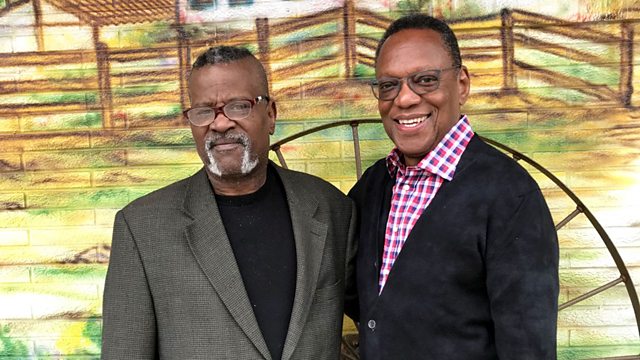American Art: From the Outside In
Art collector and broadcaster Alvin Hall examines how African-American self-taught artists are gaining recognition from American institutions today and why there is further to go.
Art collector and broadcaster Alvin Hall, examines how the dynamic work of African-American self-taught artists is gaining recognition from American institutions today - and how much more needs to be done to address this neglected canon.
Having to fight both the barriers of race and of operating outside the art world, self-taught African-American artists are still not always afforded as much recognition as their formally trained peers.
Groundbreaking exhibition Outliers and American Vanguard Art at The National Gallery of Art in Washington D.C. is seeking to change this, positioning self-taught and outsider artists alongside one another and making reference to how self-taught artists inspired their formally trained peers. Alvin visits the exhibition and speaks to its curator, Lynne Cooke.
He explores the legacy of several key 20th century self-taught African-American artists and tells their life stories. Maxwell Anderson, the Director of the Souls Grown Deep Foundation, explains the ongoing process of integrating their vast collection of African-American vernacular art from the South into museums' collections.
Alvin probes the difficulties around the term "self-taught" and its problematic alternatives "primitive" and "na茂ve". He considers how limiting categorising such a diverse range of art can be. Have so-called Outsiders become part of the mainstream?
Alvin also meets self-taught black artists working today. Have they noticed a shift in interest and representation? Informally trained artist Kevin Sampson, questions whether, in today鈥檚 hyper-connected society, there is such a thing as "self-taught" anymore.
Writer and presenter: Alvin Hall
Additonal research: Alvin Hall and Louise Morris
Producers: Louise Morris and Andrew McGibbon
A Curtains For Radio production for 大象传媒 Radio 4


